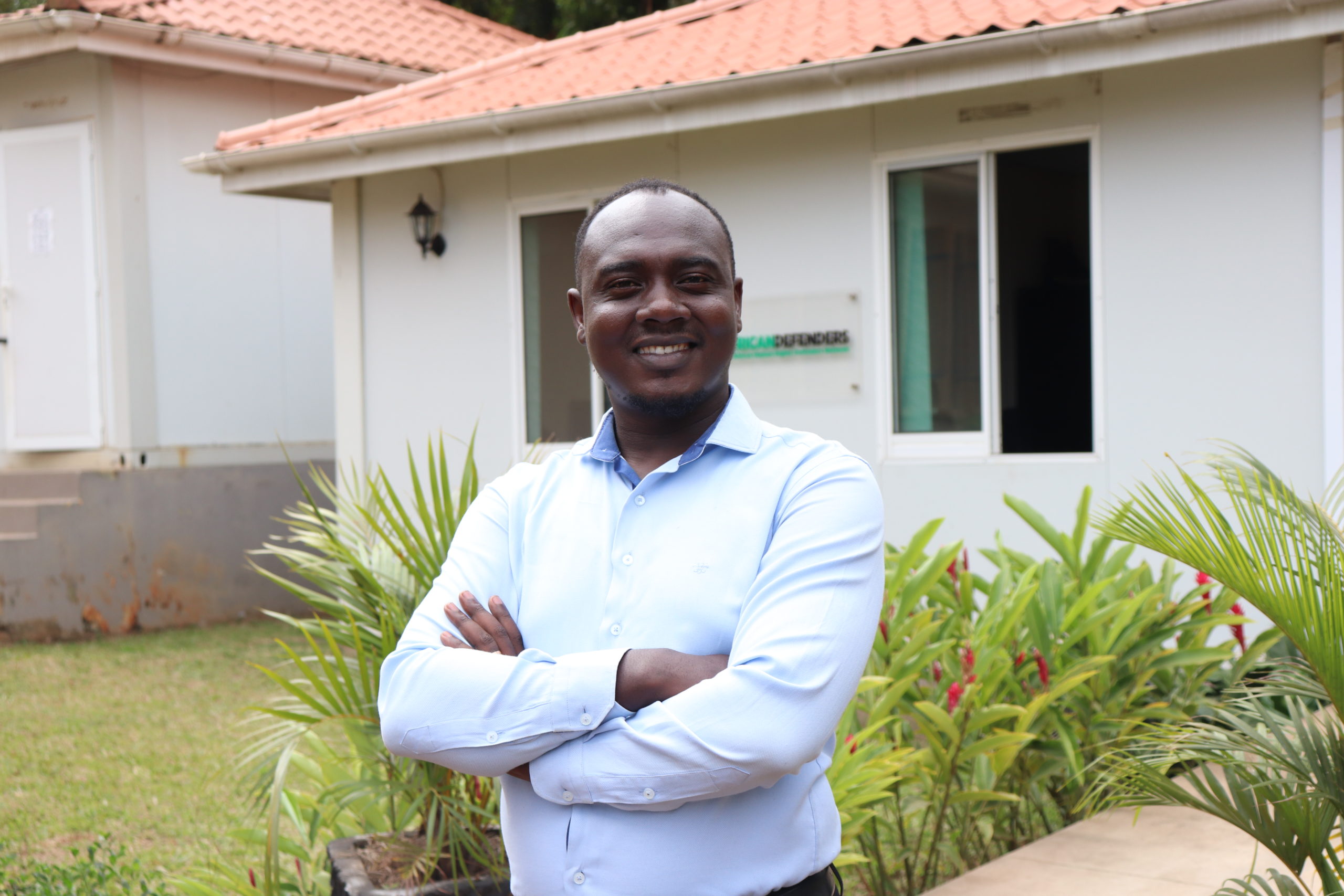Karis Moses Oteba is DefendDefenders’ Protection Officer and Well-being Lead, promoting self-care and effective stress management amongst human rights defenders (HRDs). He started defending human rights at the early age of 11, as a member of the children’s parliament, convened to listen to the views of children concerning Uganda’s 1997 Children’s Act.
“Within DefendDefenders’ protection department, we often encounter anger outbursts, owing to the desperate situations HRDs face. In the beginning I would argue back and forth with them, but I have learned to stay calm, and appreciate where they are coming from,” Karis tells us. While HRDs are particularly at-risk for mental health issues, they rarely get specialised help. Karis estimates that most HRDs seeking DefendDefenders’ protection, suffer from some underlying well-being issue, due to the nature of their work.
Within DefendDefenders’ protection department, we often encounter anger outbursts, owing to the desperate situations HRDs face. In the beginning I would argue back and forth with them, but I have learned to stay calm, and appreciate where they are coming from.
Karis Moses Oteba Tweet
Karis knows how mentally difficult human rights work can be. Before joining DefendDefenders, he provided psycho-social support to former child soldiers in post-conflict Northern Uganda. Working with traumatised populations can take its toll: “I’ve found myself in places where I am so pained and feeling a lot of frustration, because of the injustice, the violations, and the abuses that I come face to face with, it pushes me to tears.” And HRDs do not only encounter difficulties at work, in fact their work often takes a toll on their private lives, as Karis can attest: “I love to sing, I am a musical artist. But I got thrown out of a church band, because my viewpoints contradicted what most people in the band felt.”
To deal with these experiences, Karis has learnt to prioritise self-care and he wants to share this knowledge with other HRDs. To be better equipped, Karis decided to study psychology alongside his work with DefendDefenders. This gives him a unique vantage point, understanding both the struggles of HRDs as well as psychological foundations of well-being and self-care. His main advice to HRDs is not to be ashamed to seek help: “caring about others means taking care of yourself, because you can only be helpful when you are alive and well. Seeking psycho-social support does not make one less than who they really are, rather it is the mark of strength and courage.”
Caring about others means taking care of yourself, because you can only be helpful when you are alive and well. Seeking psycho-social support does not make one less than who they really are, rather it is the mark of strength and courage.
Karis Moses Oteba Tweet
For more on self-care, take a look at our content on HRD mental well-being from June and stay tuned for more resources going online in the coming weeks.

